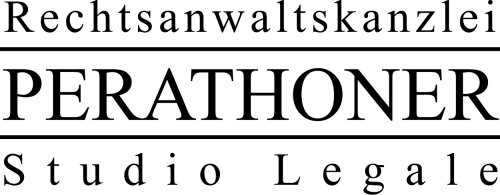Best Landlord & Tenant Lawyers in Bolzano
Share your needs with us, get contacted by law firms.
Free. Takes 2 min.
Free Guide to Hiring a Real Estate Lawyer
List of the best lawyers in Bolzano, Italy
About Landlord & Tenant Law in Bolzano, Italy
In Bolzano, Italy, landlord and tenant law is governed by a series of regulations that ensure fair practices in property rental transactions. This legal framework aims to balance the interests of both landlords and tenants, safeguarding their respective rights and responsibilities. Renting property in Bolzano involves numerous legal procedures and standards that regulate tenancy agreements, property conditions, and dispute resolution. This guide provides key information for those seeking to navigate the landlord and tenant landscape in this region.
Why You May Need a Lawyer
Individuals may require legal assistance in landlord and tenant matters for a variety of reasons. Common scenarios include drafting or reviewing rental agreements to ensure compliance with local laws, addressing disputes over lease terms such as rent increases or maintenance responsibilities, or handling eviction proceedings. Legal expertise is often needed to resolve conflicts over security deposits, property damages, or issues of habitability. Engaging a lawyer can also be crucial for navigating complex tenancy rights and obligations or for representation in court, if necessary.
Local Laws Overview
In Bolzano, several key aspects of local laws are particularly relevant to landlord and tenant relationships. Italian national laws, complemented by regional regulations applicable in South Tyrol, define the framework for rental agreements, usually requiring written contracts that specify terms such as duration, rent, and other conditions. Tenants have rights to a habitable living environment, while landlords are entitled to timely rent payments. Eviction procedures are strictly regulated and require substantial legal grounds. Disputes are often resolved through local tenancy boards or the judicial system.
Frequently Asked Questions
What must be included in a tenancy agreement?
A tenancy agreement should include essential details such as the rental amount, duration of the lease, terms of deposit, responsibilities for repairs and maintenance, and conditions for lease termination.
Can a landlord increase the rent unilaterally?
Rent increases are typically regulated by law and are subject to specific conditions. Any potential increase must be stipulated in the lease agreement and usually cannot exceed a certain percentage set by local regulations.
What are a tenant's rights concerning property maintenance?
Tenants have the right to a habitable property which means the landlord must ensure it is safe and in good repair. This includes addressing any structural issues and making necessary repairs promptly.
How is a security deposit handled?
The security deposit is usually equivalent to a few months' rent and must be returned at the end of the tenancy, minus any justifiable deductions for damages or unpaid rent.
Under what circumstances can a landlord evict a tenant?
Eviction can proceed under specific circumstances such as non-payment of rent or breach of lease terms, but it requires legal process through a court, and tenants have the right to defend against the eviction.
Are there specific rules for terminating a tenancy?
Tenancy termination must adhere to the notice period stipulated in the lease, and both parties have obligations to fulfill before ending a tenancy, such as ensuring the property is in good condition.
Can tenants withhold rent if repairs are not made?
While tenants have the right to a habitable property, withholding rent is usually not advisable without legal consultation, as it may lead to disputes and potential legal issues.
What steps are involved in resolving disputes with a landlord?
Disputes are often resolved through communication, mediation, or arbitration. If these do not succeed, legal recourse might be necessary in a local court.
How can a landlord check a prospective tenant's background?
Landlords can request references, proof of income, and credit checks as part of the tenant screening process, always respecting privacy laws and regulations.
What legal protections exist for tenants against unfair eviction?
Tenants are protected by laws that prohibit eviction without due cause and process. Any eviction must follow legal procedures and provide tenants an opportunity to contest.
Additional Resources
Individuals seeking further assistance may contact local organizations such as tenant associations and legal aid services in Bolzano. Additionally, the Italian consumer protection agency provides resources and support for landlord-tenant issues. Consulting governmental bodies like the local housing authority can also offer guidance on statutory rights and responsibilities.
Next Steps
If you need legal assistance in landlord and tenant matters, consider consulting with a local attorney specializing in real estate law. Legal professionals can provide tailored advice and representation, ensuring compliance with local regulations and protecting your interests. It's advisable to prepare documentation related to your tenancy agreement, communications, and any grievances before seeking legal advice, as this can facilitate a more efficient resolution process.
Lawzana helps you find the best lawyers and law firms in Bolzano through a curated and pre-screened list of qualified legal professionals. Our platform offers rankings and detailed profiles of attorneys and law firms, allowing you to compare based on practice areas, including Landlord & Tenant, experience, and client feedback.
Each profile includes a description of the firm's areas of practice, client reviews, team members and partners, year of establishment, spoken languages, office locations, contact information, social media presence, and any published articles or resources. Most firms on our platform speak English and are experienced in both local and international legal matters.
Get a quote from top-rated law firms in Bolzano, Italy — quickly, securely, and without unnecessary hassle.
Disclaimer:
The information provided on this page is for general informational purposes only and does not constitute legal advice. While we strive to ensure the accuracy and relevance of the content, legal information may change over time, and interpretations of the law can vary. You should always consult with a qualified legal professional for advice specific to your situation.
We disclaim all liability for actions taken or not taken based on the content of this page. If you believe any information is incorrect or outdated, please contact us, and we will review and update it where appropriate.









